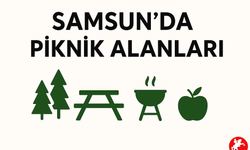During this period, children perceive the world in a more complex way and develop more complex thinking skills. Language skills advance rapidly and vocabulary expands. In addition, there are improvements in the ability to express and understand oneself. During this period, children often use the word "no" to express their desire for independence. In particular, they may exhibit behaviors that are inconsistent with what their parents want. This is part of the child's process of discovering his or her own personality.
At the same time, children experience an emotionally complex process during this period. Temper tantrums and irritability may occur when the child has difficulty in understanding and expressing his or her emotional world. During this period, children interact more with their environment and their learning speed is quite high. At the same time, the child's desire for independence and emotional volatility can make this period challenging.
Cognitively, 2-year-old syndrome is a period in which children rapidly develop their thinking and problem-solving skills. They begin to understand the properties and functions of objects. "From where?" and what?" Questions like these are frequently asked because they increase their curiosity. Also, their memory capacity increases and they are able to recall experiences they have seen or had.
Emotionally, children learn to understand and express their own emotions and those of others. However, this process can be complex. Reactions such as tantrums, irritability, crying can be seen frequently. This can occur when the child has difficulty understanding and controlling his or her emotional world.
Socially, children now interact more with other people and develop their social skills. Playing games, sharing and understanding the feelings of others are skills that show significant development during this period. However, children may also experience friction from time to time in their relationships with their friends.
Parents can use various methods to support this process of their children. It is important to organize activities that will encourage the child's curiosity, to be in active communication with him and to respond sensitively to his emotional needs. At the same time, establishing boundaries and ensuring consistency helps the child grow in a safe environment.
During the 2-year-old syndrome that children experience, you may experience the following symptoms and behaviors:
1. Desire for Independence: 2-year-olds tend to say "I can do it". While trying to do simple tasks on their own, they may reject offers of help from their parents. This is an indication of their increased sense of autonomy and independence.
2. Language Development: Around the age of 2, children's language skills develop rapidly. Vocabulary expands, sentences become more complex, and they become more successful in understanding and expressing.
3. Limits Test: 2-year-olds tend to test boundaries. They can test parents' rules by using the word "no" frequently. This behavior is part of the child's effort to discover their own autonomy.
4. Emotional lability: Children may experience emotional ups and downs during the 2-year-old syndrome period. They may show extreme anger or irritability right after a moment of sudden happiness. These emotional lability indicate that they have difficulty understanding and expressing their emotional world.
5. Imitation Ability: In this period, children tend to imitate what they observe around them. By imitating adults, they improve their social skills and communication skills.
Specialist Psychologist Tuğçe Yılmaz said, ''The 2-year-old syndrome should be seen as a transitional period. By completing the changes during this period, your child will progress with greater self-confidence and social skills. During this time, it is important to support your child with patience and a loving attitude. If your concerns or the problems you experience in this regard are at a level that will affect your quality of life, it may be useful to get support from a specialist.



























